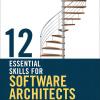 |
Management Myth #5: We Must Have an Objective Ranking System An objective ranking system is unnecessary when trying to determine an employee's value, and it can even be detrimental to collaboration on teams. Providing feedback, facilitating knowledge building, and allowing them to contribute are three key ways to help your employees excel in their roles.
|
|
|
|
Management Myth #4: I Don't Need One-on-Ones One-on-ones aren’t for status reports. They aren’t just for knowing all the projects. They are for feedback and coaching, and meta-feedback and meta-coaching, and for fine-tuning the organization. If you are a manager and you aren’t using one-on-ones, you are not using the most important management tool you have.
|
|
 |
Management Myth #3: We Must Treat Everyone the Same Way One of the biggest management myths is, “I must treat everyone the same way.” Nothing could be further from the truth. Everyone has different goals for their career, and those change over the course of a career.
|
|
|
|
Management Myth #2: Only ‘The Expert’ Can Perform This Work How many times have you seen this in your projects: You need something specific done such as a new database, or a specific user interface designed, or you need a release engineer, or a user interface designer, or a part of the system tested and the normal person who does that work is not available? What happens on your project? Does it wait until The Expert is available?
|
|
|
|
We Are Not Alone Do you know colleagues who box themselves into the corner regularly? Getting lost is not the problem; coping with having gotten lost is the problem. Markus Gärtner explains how to notice that you are stuck, how to ask for help, and who you should be asking.
|
|
 |
Dave Hendricksen's 12 Essential Skills for Software Architects In this TechWell interview, Dave Hendricksen, author of 12 Essential Skills for Software Architects, discusses his new book that covers the soft skills that technical people should learn.
|
|
|
|
Dependable vs. Irreplaceable We all like being in demand, feeling wanted, and being dependable. But, we forget that there is a thin line between being dependable and irreplaceable. The result is not only a loss of credibility but also a loss of opportunities
|
|
|
|
Why Testers and QA Engineers Need to Learn Continuously Information technology changes fast, and none of us knows what our future holds. It’s hard to keep up with new programming languages, patterns, tools, frameworks, design techniques, and practices. If you’re a programmer who doesn’t keep her skills up to date, you won’t get the best job opportunities—in fact, you might not get any. Yet, we observe many people who call themselves testers or quality assurance professionals but don’t make much effort to learn new things.
|
|
|
|
Old Habits Die Hard It’s easy to develop habits in one environment that don’t translate to a new environment. Here are some tips to keep old habits from holding you back.
|
|
|
|
Reducing Surprise: Another Feature of Good Project Management The portions of projects that are not yet complete occur in the future. Since the future is an uncertain place, there will always be surprises. Some surprises are so obvious that they should hardly be called surprises at all. This is the kind of surprise that project management helps to avoid.
|
|

